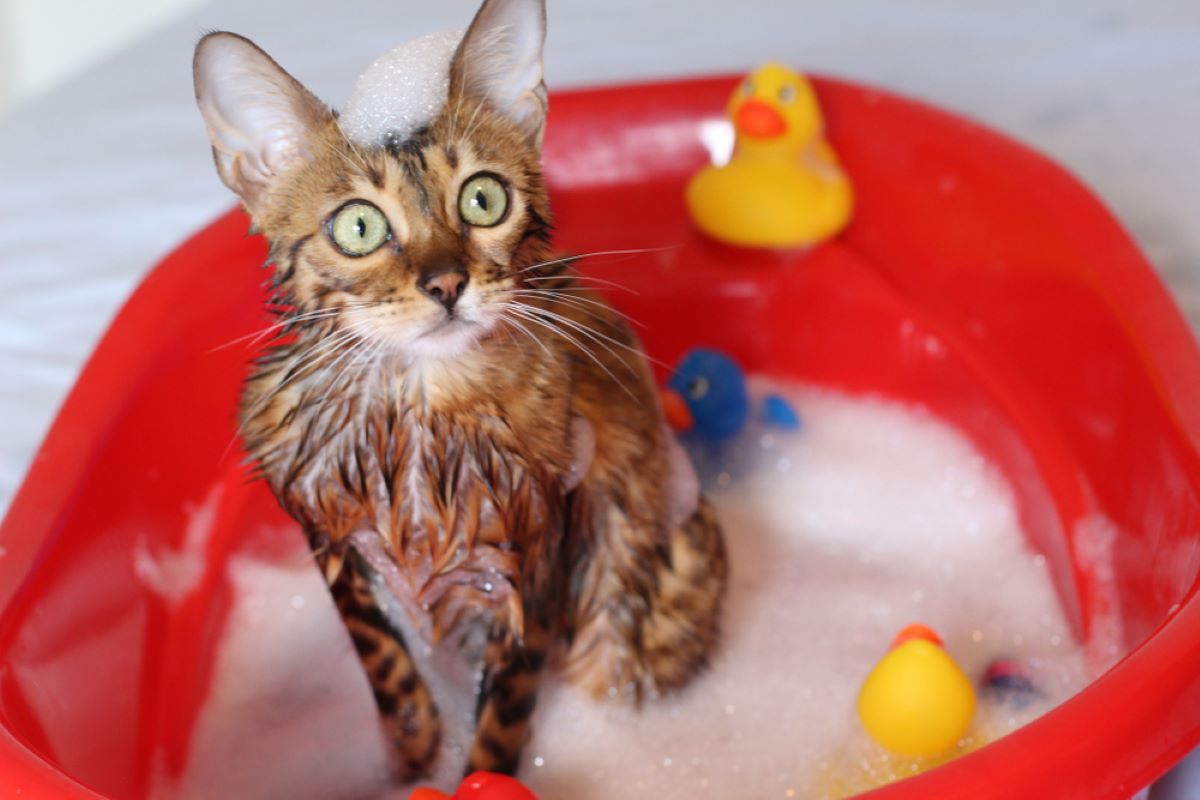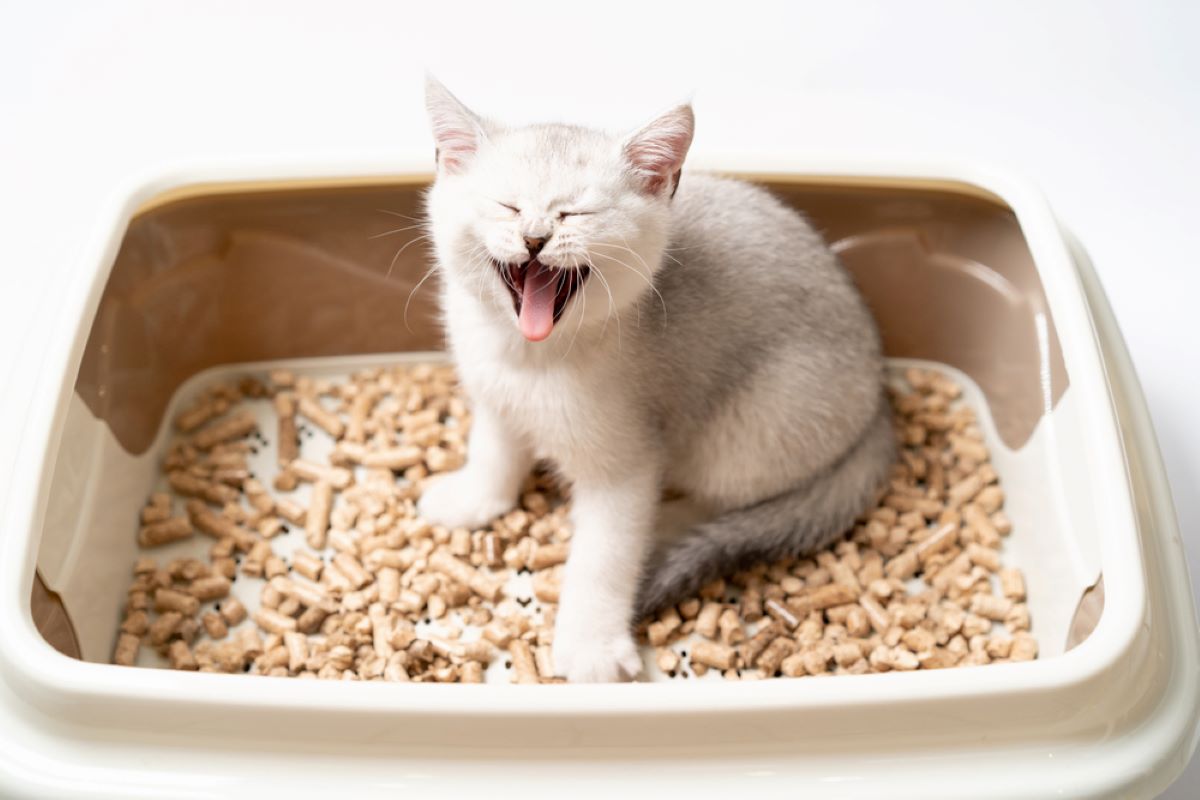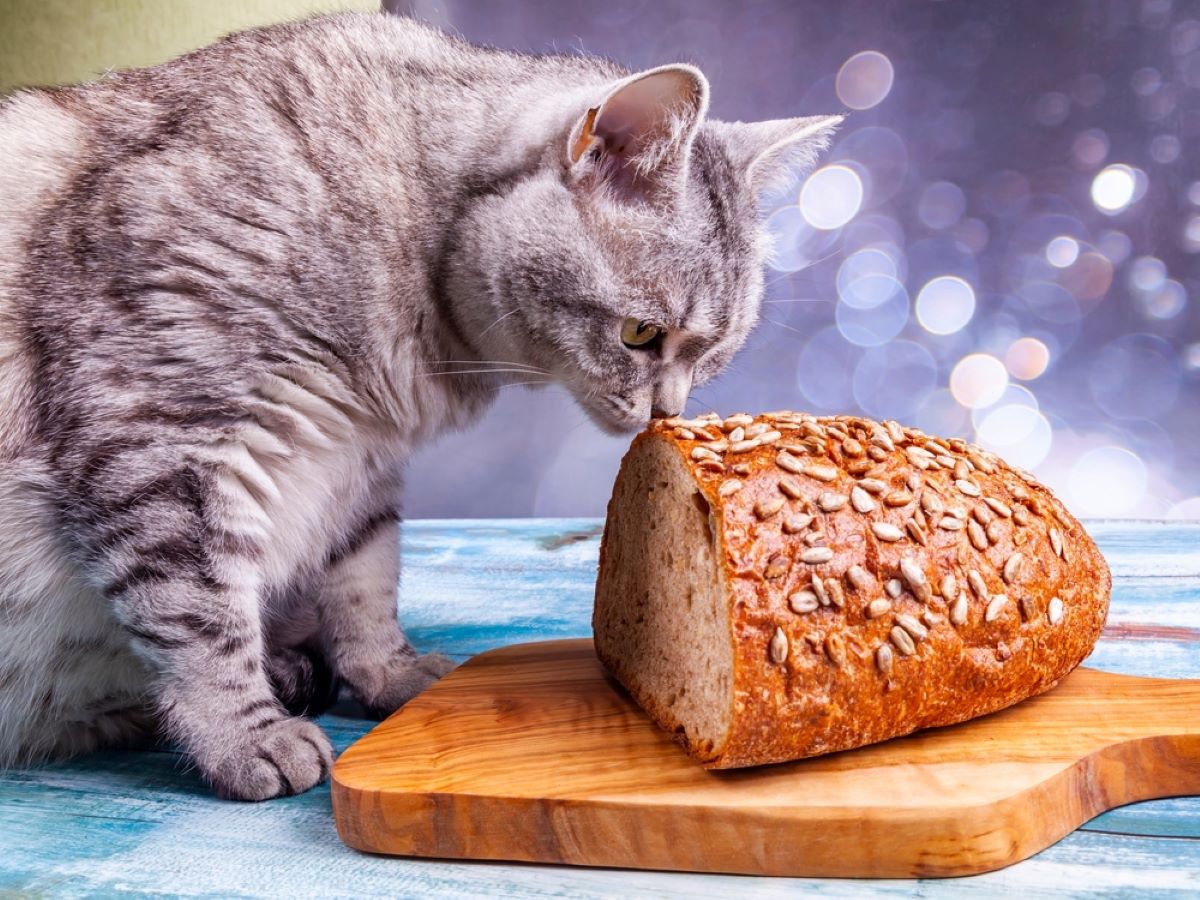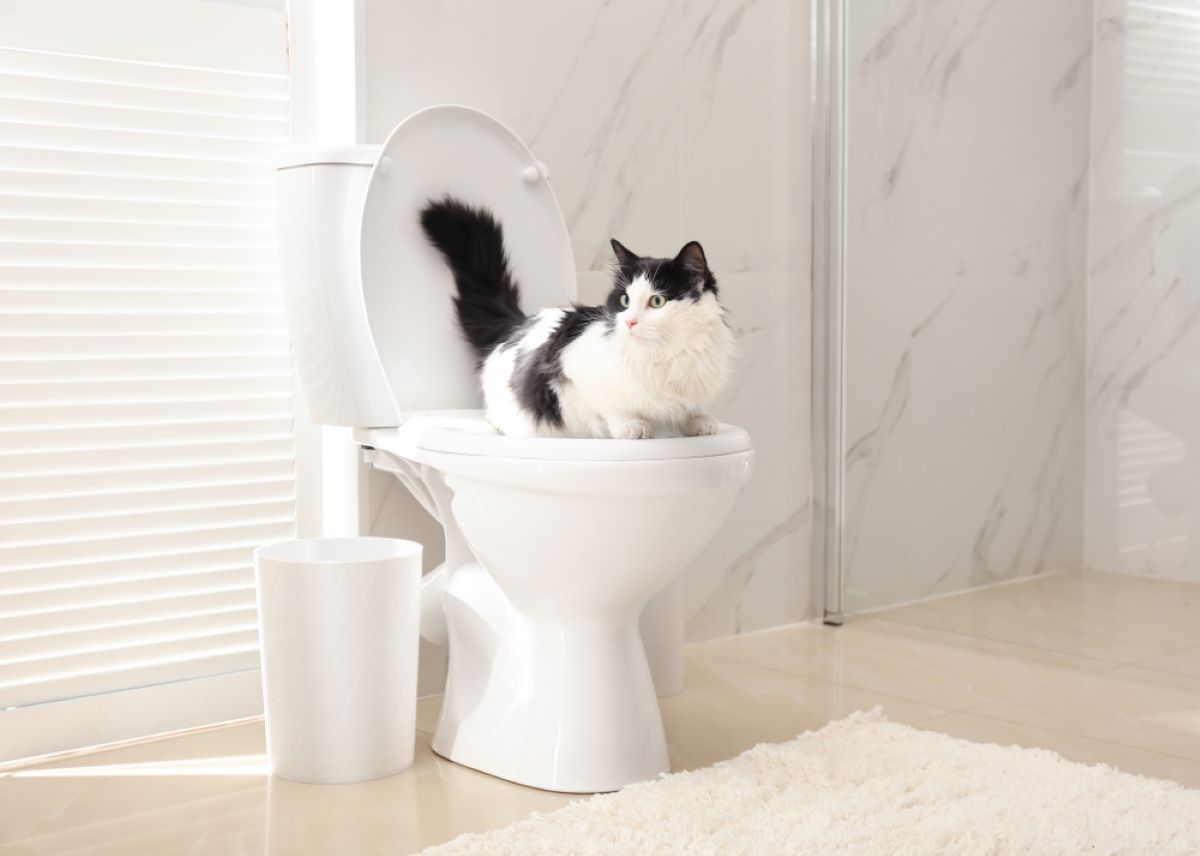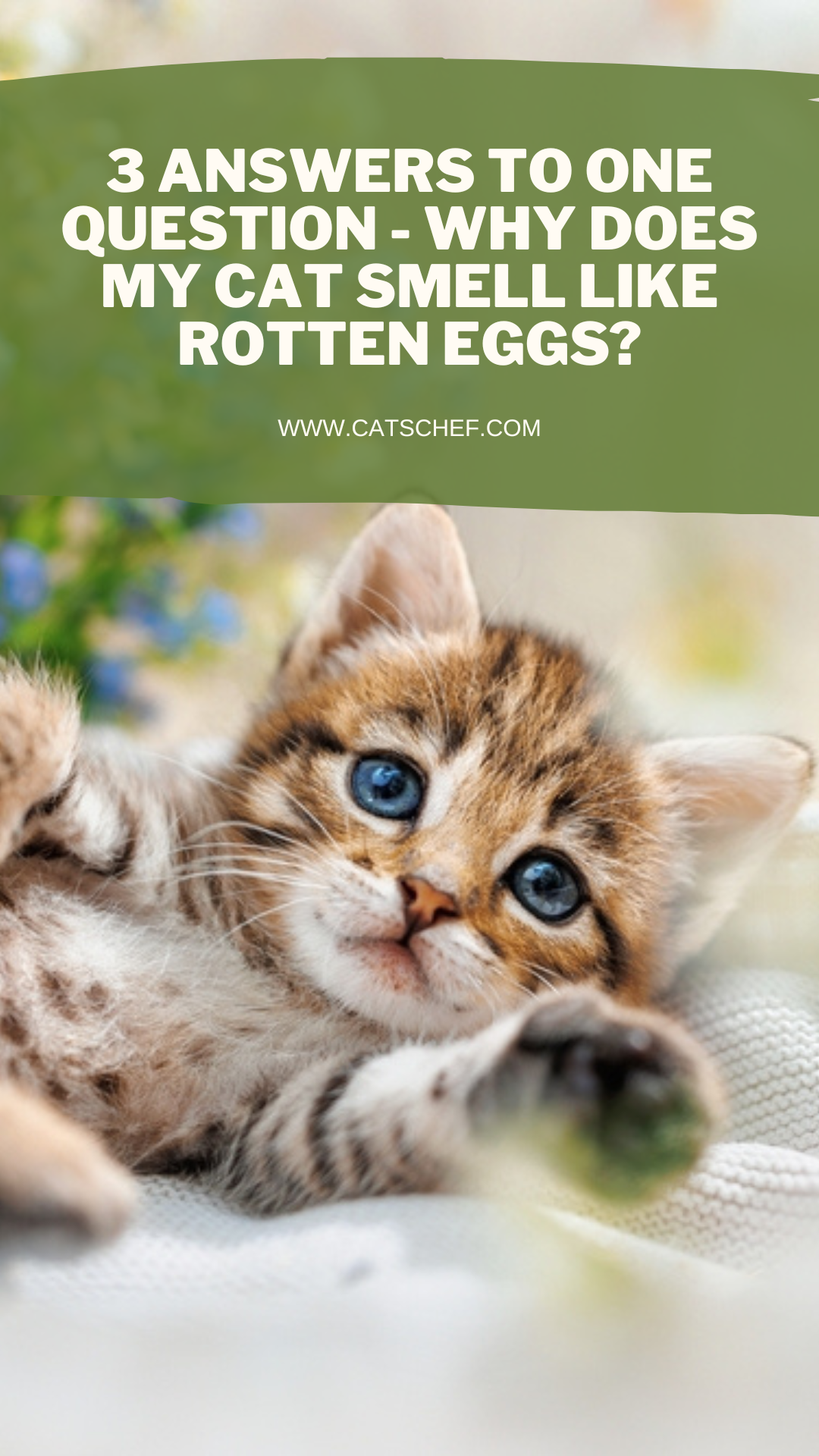📖 Table of Content:
One thing is certain: cats are one of the cutest animals in the world! Everything they do is adorable and Instagram-worthy and we can’t help but to snap a picture here and there or take a funny video.
They are like the epitome of graciousness and elegance. Beautiful and dignified in everything they do, their mysterious appearance inspires us to be the best version of ourselves.
That is why it is inevitable that we are left bewildered when we find out that such beautiful creatures are capable of emitting such a deadly stench.
“Is this rotten egg smell coming from you, Molly? How on earth is this possible, sweety?”
Several times I have experienced that my cat emits such a horrible smell that reminds me of sulfur. But, I wasn’t the only one left confused. She was too!
If you are also wondering why your kitty smells like rotten eggs, you’ve found the right article for you!
1. Your cat has poor digestive health
A smelly fart can be one of the first signs of your cat’s poor digestive health.
Her gastrointestinal tract is, just like yours, home to various microbes, often referred to as intestinal microbiota. These microbes play an important role in the digestion of food your cat eats, breaking it down into usable components.
The microbes of the large intestines are responsible for the digestion of food that the small intestine is unable to digest, like fibers or complex carbohydrates. This fermentation process often results in the production of certain gases, like hydrogen, oxygen, nitrogen, methane, and carbon dioxide.
The production of a small amount of gas is a normal thing and it’s usually odorless. However, once you notice the gas smells sulfury (a.k.a. like rotten eggs), that’s your sign that something could be wrong with your kitty’s GI tract. Especially if it’s accompanied by other symptoms, like vomiting or constipation.
This usually happens when a large amount of undigested food builds up in your feline’s GI tract which intestinal microbiota is unable to properly break down. This results in the overproduction of gas which, when released later on, smells like sulfur.
It’s best to take your cat to the vet as soon as you notice the smelly fart situation is not a one-time thing. The vet will then examine her and surely be able to help her in some way.
2. Her diet is the main culprit behind that rotten egg smell
I’ve always wondered what on Earth could be the right occasion to sing Pheobe’s song. But, now I know, I guess. Let’s sing, “Smelly cat, smelly cat, what are they feeding you? Smelly cat, smelly cat, it’s not your fault.”
Another reason why your kitty smells like rotten eggs is hidden in her diet. Maybe the food that she’s eating has excessive amounts of sulfur (hence the sulfury smell).
Sulfur can usually be found in many proteins, like fish, eggs, beef, or chicken, and can often lead to smelly farts when broken down.
Also, if your kitty isn’t eating so well or if she recently went missing and was forced to fend for herself by hunting rats or rummaging through garbage cans, the poor food choices might have caused some GI issues.
So, as mentioned above, her poor diet took its toll on her intestinal microbiota, resulting in a poor digestive process and inevitable sulfury flatulence.
3. She has certain anal gland problems
And the third reason why your cat might smell like rotten eggs is that she has some anal gland issues. This is more common in dogs, but cat parents should be on the lookout, too.
Cats have two anal scent glands located inside the rectum. Their main purpose is to mark the cat’s territory, which is done by releasing a dark and smelly liquid. This liquid is usually released together with the poop.
However, sometimes certain problems may occur. For example, those anal glands can become clogged, which then makes it harder for your kitty to relieve herself, inevitably leading to constipation. This can also lead to bacterial infection, resulting in annoying pain and itching for your cat.
Your cat might also be constantly having an extremely soft stool. Because of this condition, she doesn’t have to strain herself too much, and that liquid doesn’t get released, and it starts to build up. There could also be a puss-filled mass which is very painful and has to be treated by a certified vet.
All of these conditions or anal gland problems lead to a smelly rear, and can even cause your kitty to smell like rotten eggs.
How can you minimize the rotten egg smell?
Well, first things first, you have to take your cat to the vet. Her vet has to see if she is suffering from any serious health conditions. And if she does, he will know what treatment would be the best for her.
He would also be the one to rule out any severe condition and determine if the problem is merely in her diet. Whatever the case may be, never do anything on your own. It’s not worth it to play cat doctor since it can be only fatal for your kitty.
Anyway, if your vet determines your cat’s diet is the main culprit behind the rotten egg smell, here’s what you can consider doing:
- Change her diet, of course – If you decide to switch to a new type of food, make sure you do it slowly and in small quantities so your fluff can adjust easily.
- Don’t share your food with her – Yup, this one can be challenging, especially when she’s looking at you with those big round eyes. But try as hard as you can and don’t give her the food you’re eating. Your digestive systems are nothing alike, and you can only cause her trouble by giving her your spicy chicken. She has to stick to her own food.
- Make sure she doesn’t partake in scavenger hunts – If your kitty is curious by nature and known to be a good hunter, she might be sticking her nose in your trash bins or sniffing out dead birds and bringing them home to you. Never allow this! In order to reduce the smelly farts, she has to eat cat food approved by you.
